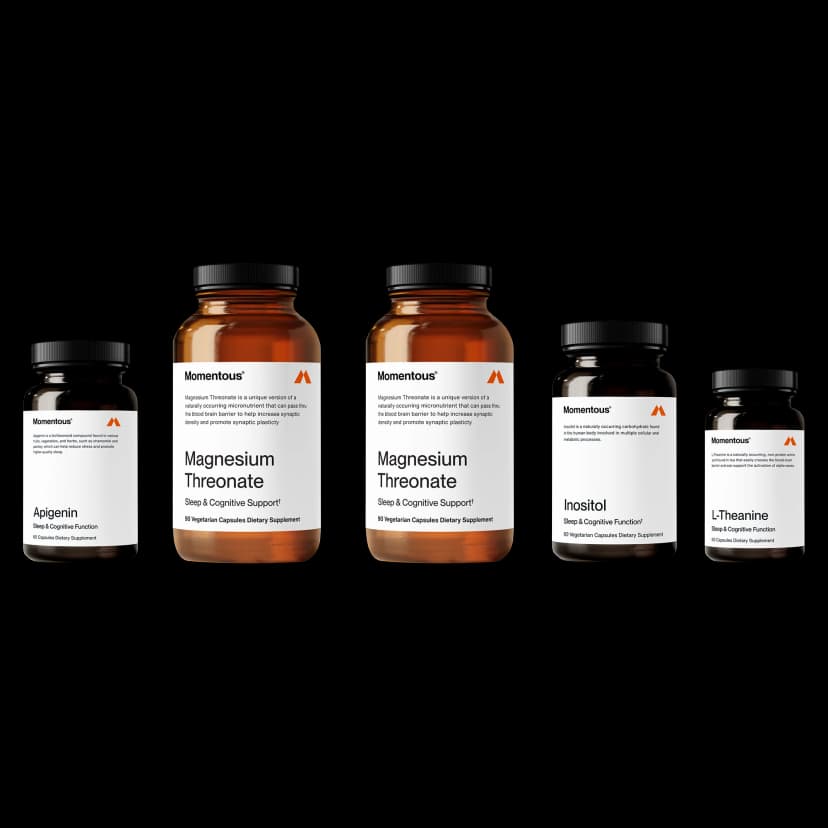Probiotics and prebiotics are often mentioned in discussions about gut health, but many people don't know what they are or how they differ. Understanding these two components can help you make better choices for your digestive health. This article will explore the differences between probiotics and prebiotics, their benefits, and how to include them in your diet.
Key Takeaways
- Probiotics are live bacteria that help keep your gut healthy.
- Prebiotics are fibers that feed the good bacteria in your gut.
- Both probiotics and prebiotics are essential for maintaining a balanced gut microbiome.
- You can find probiotics in fermented foods like yogurt and prebiotics in high-fiber foods like fruits and vegetables.
- Combining probiotics and prebiotics can enhance their benefits and improve your overall gut health.
Understanding the Gut Microbiome
Role of Gut Bacteria
The gut microbiome refers to all the bacteria that live inside your gastrointestinal tract. There are over 1,000 types of bacteria in your gut, and they play a crucial role in various bodily functions. These bacteria help with digestion, making energy from food, supporting the immune system, and fighting off infections. Here are some key roles of gut bacteria:
- Digestion: Gut bacteria help break down complex carbohydrates, fiber, and other indigestible substances, making it easier for our bodies to absorb nutrients.
- Metabolism: They support metabolism by breaking down complex carbohydrates, extracting energy from food, reducing fat storage, and regulating appetite and blood sugar.
- Vitamin Production: Gut bacteria convert carbohydrates into essential vitamins like thiamine, folate, biotin, riboflavin, pantothenic acid, and vitamin K.
- Protection Against Disease: Certain gut bacteria produce substances that can kill harmful pathogens and stimulate the intestines to produce antibodies.
- Immune System Health: They help our immune cells differentiate between friend and foe, providing a robust defense against infections and diseases.
- Mood and Mental Health: Gut bacteria influence brain and mood health through the gut-brain axis, producing neurotransmitters like serotonin that affect mood balance and emotional health.
Factors Influencing Gut Health
Several factors can impact the health and diversity of your gut microbiome, potentially leading to health issues. Here are some common factors:
- Diet: A diet rich in fiber, fruits, vegetables, and fermented foods promotes a healthy gut microbiome. Conversely, a diet high in processed foods and sugars can disrupt this balance.
- Antibiotics: Antibiotic use can kill beneficial gut bacteria, disrupting the microbiome's balance.
- Age: The diversity of gut bacteria changes with age, affecting overall gut health.
- Stress: High stress levels can negatively impact gut health.
- Infections: Infections can alter the gut microbiome, affecting its ability to perform its functions.
Impact on Overall Health
A healthy gut microbiome is essential for overall health. It supports digestion, metabolism, immune function, and even mental health. Without a healthy microbiome, people may be at higher risk of developing certain medical conditions. Maintaining a balanced and diverse gut microbiome is key to overall well-being.
Diverse and plentiful gut bacteria are key for gut health. Adding a variety of prebiotic and probiotic foods to your diet can help keep your gut in balance and at its ideal functioning.
What Are Probiotics?
Definition and Sources
Probiotics are foods or supplements that contain live beneficial bacteria. These good bacteria help maintain a healthy gut microbiome, which is essential for digestion, vitamin production, and protection against infections. When you consume probiotics, you introduce live bacteria into your gut, helping to restore and maintain a balanced microbiome.
Common sources of probiotics include:
- Yogurt with live cultures
- Fermented foods like sauerkraut, kimchi, and kefir
- Some types of pickles and other pickled vegetables (unpasteurized)
Health Benefits
Probiotics offer several potential health benefits, although research is still ongoing. Some of the areas where probiotics may be beneficial include:
- Digestive health
- Gastrointestinal health
- Mental health
- General health, such as reducing the need for antibiotics, managing gestational diabetes, and preventing vaginal infections and eczema
Probiotics can be particularly useful for people who have taken antibiotics, as these medications can kill both harmful and beneficial bacteria in the gut.
Common Probiotic Strains
There are many different strains of probiotics, but some of the most common include:
- Lactobacillus: Often found in yogurt and fermented foods, this strain helps with digestion and can aid in the prevention of diarrhea.
- Bifidobacterium: Commonly found in dairy products, this strain supports the immune system and helps break down lactose into nutrients the body can use.
- Saccharomyces boulardii: A type of yeast found in some probiotic supplements, it can help fight off diarrhea and other digestive issues.
Understanding the different strains can help you choose the right probiotic for your specific needs.
What Are Prebiotics?
Definition and Sources
Prebiotics are a type of dietary fiber that the body can't digest. Instead of being broken down, they travel to the gut, where they serve as food for beneficial bacteria. This helps the good bacteria in your gut grow and thrive. Common sources of prebiotics include:
- Bananas (especially unripe ones)
- Oatmeal
- Asparagus
- Sunchokes (Jerusalem artichokes)
- Leeks
- Garlic and onions
- Chicory root
- Soybeans
Health Benefits
Prebiotics offer several health benefits by promoting the growth of beneficial gut bacteria. These benefits include:
- Improved digestion and metabolism
- Enhanced calcium absorption
- Slower breakdown of carbohydrates
- Reduced risk of infections related to antibiotic use
Including a variety of prebiotic-rich foods in your diet can help maintain a healthy gut microbiome, which is essential for overall well-being.
Common Prebiotic Foods
Here are some common foods that are rich in prebiotics:
| Food | Prebiotic Content |
|---|---|
| Bananas | High in inulin fiber |
| Oatmeal | Rich in dietary fiber |
| Asparagus | Contains inulin fiber |
| Sunchokes | High in inulin fiber |
| Leeks | Beneficial for gut health |
| Garlic and Onions | Promote growth of probiotics |
| Chicory Root | Rich in inulin |
| Soybeans | Excellent prebiotic source |
Including these foods in your diet can help ensure you get a good mix of prebiotics to support your gut health.
How Probiotics and Prebiotics Work Together
Synergistic Effects
Probiotics and prebiotics work best when they are together. Probiotics are live bacteria that help keep your gut healthy, while prebiotics are fibers that feed these good bacteria. When you consume both, the prebiotics help the probiotics grow and thrive, making your gut even healthier.
Examples of Synbiotic Foods
Some foods naturally contain both probiotics and prebiotics. These are called synbiotic foods. Here are a few examples:
- Yogurt with added fiber
- Kefir with inulin
- Cheese with prebiotic fibers
Importance of Balance
Maintaining a balance between probiotics and prebiotics is crucial for gut health. Too much of one and not enough of the other can disrupt this balance. Eating a variety of foods rich in both can help keep your gut in good shape.
A balanced diet that includes both probiotics and prebiotics can lead to better digestion and overall health.
Potential Risks and Side Effects
Possible Adverse Effects of Probiotics
While probiotics are generally safe for most people, there are some potential side effects to be aware of. Common side effects include gas, bloating, and upset stomach. These symptoms often occur when starting a new probiotic regimen and usually subside after a few days. However, in rare cases, probiotics can cause more serious issues like infections, especially in people with weakened immune systems.
Possible Adverse Effects of Prebiotics
Prebiotics, which are non-digestible fibers that feed beneficial gut bacteria, can also cause side effects. The most common ones are gas, bloating, and stomach cramps. These symptoms are usually mild and temporary but can be uncomfortable. It's important to start with a small amount and gradually increase your intake to minimize these effects.
Who Should Avoid Them
Certain individuals should be cautious when taking probiotics and prebiotics. These include:
- People with weakened immune systems
- Those with severe illnesses
- Individuals who have had recent surgery
If you fall into any of these categories, consult your healthcare provider before starting any new supplement. Pregnant and breastfeeding women should also seek medical advice before incorporating probiotics or prebiotics into their diet.
Always consult your doctor before starting any new supplement, especially if you have underlying health conditions or are taking other medications.
Incorporating Probiotics and Prebiotics into Your Diet
Dietary Sources
To naturally boost your intake of probiotics and prebiotics, focus on incorporating a variety of foods into your daily meals. Probiotic-rich foods include:
- Yogurt
- Kefir
- Sauerkraut
- Kimchi
- Kombucha
- Fermented cheeses like Gouda
For prebiotics, aim to consume:
- Bananas (especially unripe)
- Oatmeal
- Asparagus
- Jerusalem artichokes
- Leeks
- Garlic and onions
- Chicory root
- Soybeans
Supplement Options
While a balanced diet is the best way to get your probiotics and prebiotics, supplements can be a convenient alternative. When choosing supplements, consider the following:
- Look for products with a seal of approval from testing agencies like Consumer Reports or Consumer Labs.
- Choose probiotic capsules that include prebiotics like inulin.
- Opt for probiotics in spore form, which are more likely to survive on the shelf and in your digestive tract.
Tips for Effective Use
To get the most out of your probiotics and prebiotics, follow these tips:
- Consistency is key: Take your supplements or consume probiotic and prebiotic foods regularly.
- Start slow: If you're new to these foods or supplements, start with small amounts to let your body adjust.
- Stay hydrated: Drinking plenty of water helps your digestive system process these foods and supplements effectively.
- Consult a healthcare professional: If you have any health conditions or are taking medications, it's wise to consult a doctor before starting any new supplement regimen.
A balanced diet rich in fruits, vegetables, and whole grains can naturally provide the necessary prebiotics and probiotics to improve gut health. If you're unsure about your dietary needs, consulting with a healthcare professional is a smart choice.
Conclusion
Understanding the difference between probiotics and prebiotics is key to maintaining a healthy gut. Probiotics are live bacteria that help balance your gut flora, while prebiotics are the food that these bacteria need to thrive. Including both in your diet can support digestion, boost your immune system, and improve overall health. By eating a variety of fruits, vegetables, and fermented foods, you can naturally incorporate these beneficial elements into your daily routine. Remember, a healthy gut is a cornerstone of overall well-being, so take care of it by making informed dietary choices.
Frequently Asked Questions
What are probiotics?
Probiotics are live bacteria and yeasts that are good for your health, especially your digestive system. They are often called 'good' or 'friendly' bacteria because they help keep your gut healthy. You can find them in foods like yogurt, kefir, and fermented vegetables, or take them as supplements.
What are prebiotics?
Prebiotics are types of dietary fiber that feed the friendly bacteria in your gut. They are found in foods like bananas, onions, garlic, and whole grains. Unlike probiotics, prebiotics are not live bacteria but rather the food that helps these good bacteria grow and thrive.
How do probiotics and prebiotics work together?
Probiotics and prebiotics work together to support a healthy gut. Probiotics add beneficial bacteria to your gut, while prebiotics provide the food these bacteria need to grow and stay active. This combination helps maintain a balanced gut microbiome.
Can I take probiotics and prebiotics every day?
Yes, you can take probiotics and prebiotics every day. Including foods rich in these in your daily diet can help maintain a healthy gut. However, if you are considering taking supplements, it’s a good idea to talk to a healthcare provider first.
Are there any side effects of taking probiotics or prebiotics?
Most people can take probiotics and prebiotics without any issues. However, some might experience mild side effects like gas, bloating, or an upset stomach. If you have a weakened immune system or other health conditions, consult your doctor before starting any new supplement.
Who should avoid taking probiotics or prebiotics?
People with weakened immune systems or serious health conditions should talk to their doctor before taking probiotics or prebiotics. In some cases, these supplements might not be safe or could cause adverse effects.
























